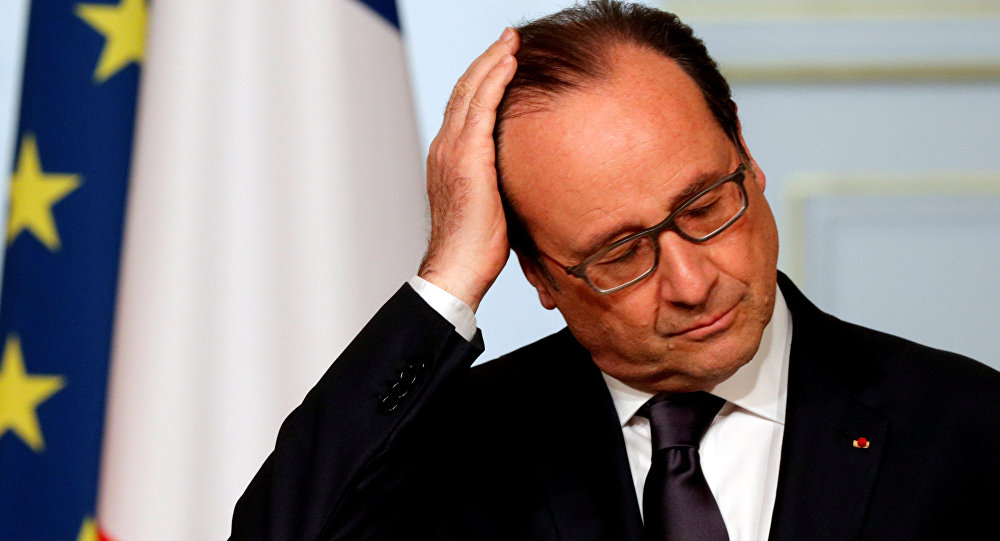Once the wunderkind of French Socialist party to earning the tag of ‘Mr Weak’ in the very first year of his presidency and ultimately ending the term with the worst approval rating in Fifth Republic’s history, Francois Hollande’s term as president of France is a cautionary tale for leaders in what not to do. Succeeding the brash, suave conservative Nicolas Sarkozy, Hollande faced an uphill task from the very beginning and with unemployment rate rising to record numbers in the first year of his office, he proved to be an ineffective leader, clueless about handling crisis, lacking foresight and even inept at managing and quelling dissent within the party, undermining his own position.
Sins of Hollande
Perhaps the most defining characteristic of Francois Hollande’s presidential term would be his indecisiveness. From declaring world of finance to be his ‘enemy’ and appointing a former investment banker as the economy minister, to advocating mandatory refugee intake and forcible removal of Roma refugees, his policy was mired with ambivalence and ambiguity. It was during his tenure that France faced some of the worst terror attacks including Nice attack, Charlie Hebdo massacre, Paris attacks and numerous other lone-wolf attacks sponsored or inspired by ISIS. Even then, Hollande never took a determined position on radical Islamic terrorism. To the chagrin of French people reeling under back to back terror attacks, Hollande kept pushing for EU mandatory migrant quota weakening his position in the party and cementing his disapproval among the French public. His vigorous pushing for mandatory migrant quotas and the public outcry generated against it was one of the main reasons behind the meteoric rise of far right politician such as Marine Le-Pen.
If Hollande’s first year in office was ‘unusual’ for a president, his last year was momentous in terms of popular backlash. Hollande’s approval ratings sunk as low as four percent during the last year of his presidency earning him the unenviable title of ‘Worst President in French History’. The reputation was not without merit. His anti-business and anti-rich economic policies crippled entrepreneurship in the country. His infamous anti-rich tax was met with backlash and caused much consternation among the businessmen. His anti-business policies led to paralysis in the industry and economy hindering any prospect for solving the unemployment crisis, the leitmotif of his presidency. His cabinet minister’s infamous standoff with British-Indian business owner, Lakshmi Mittal, further contributed in the sense of unease among the businessmen. The corruption and tax-evasion scandals involving his ministers solidified the popular perception that Hollande is an ineffectual leader.
At a time when France needed a decisive, fiscally prudent leader all Hollande had to offer was an utopia of ‘free lunches’ and a bumbling, cartoonish, indecisive politician who resembled his own caricature of Charlie Hebdo. On top of this, a tale of sordid extramarital affair with an actress soon surfaced involving Hollande. A customary tell-all memoir followed soon after, further cementing his reputation as lascivious, crass, entitled politician. By the time his term came to end, he was faced with internal rebellion by Macron who had resigned from the cabinet and had started working on his presidential run. On top of that, the downward approval rating made sure that Hollande had no choice but to withdraw himself from the race altogether.
Second coming?
Francois Hollande is in the news again. In a recent interview, he said that the Indian government had insisted that Reliance should be made the offset partner in the Rafale deal. The statement came at a time when the Indian opposition is hell bent on portraying the deal as an example of crony-capitalism and corruption. The French government and Dassault aviation swiftly denied the allegations that Indian government had any say in choosing the offset partner. Even so, with the statement, Francois Hollande is in the eye of the storm again. His obviously misleading statement on the Rafale deal serves two political purposes. The disgraced former President saw an opportunity in the muddied waters, a chance of the revival of his political future at a time when Macron himself is battling with low approval ratings.
Secondly, during Hollande’s term, Macron as the economy minister was seen as someone contrarian and with a rebellious streak. Macron’s waywardness and his reluctance to follow Hollande’s legislative agenda had bothered Hollande. The rebellious streak of Macron while in the cabinet of Hollande was nothing short of insubordination for the president. Hollande had himself admitted to this during an interview. He had warned Macron against getting too ambitious “Within a government there cannot be any personal ambitions, much less presidential ones.” The political controversy surrounding the Rafale deal gave the disgraced former President the perfect opportunity to take shots at his former subordinate who he had accused of being too ambitious and who, according to Hollande, had caused him much embarrassment during his tenure.
The pathetic attempt of a disgraced former president to stay relevant in politics and to get back at his former subordinate, unfortunately, is being taken too seriously by the people who were grasping at straws to find anything, just anything wrong with the Rafale deal.
